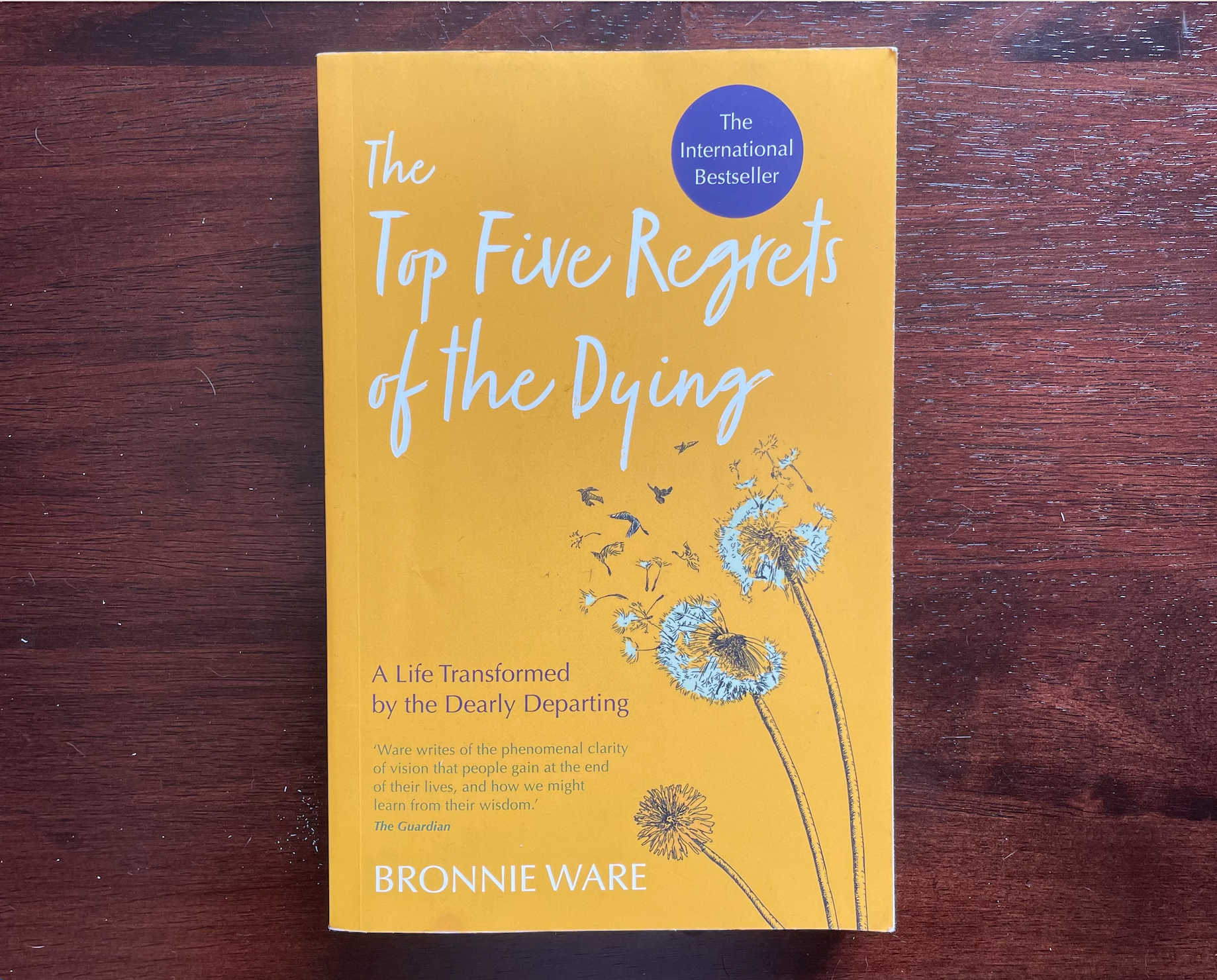To say that Bronnie Ware does not encourage us to contemplate life on nearly every page of this 300 page book would be an absolute falsehood.
Weaving from her interactions with the almost-dead to her own narratives in a seamless fashion, the author clearly illustrates what the former have to say about the things they wished they did differently throughout their lives while providing the reader with countless examples of how she, herself, time and again, fails and succeeds at listening to their advice. In doing so, Ware is far from the prototypical expert self-help author who’s got it all right. Rather, through her vulnerability and honesty, she shows the reader just how difficult it is not to do the things her dying patients advise against.
Top Five Regrets communicates myriad messages, with the most significant being to live a life filled with love and contemplation, one in which we all make conscious decisions to seek happiness and live life according to our own values. Ware urges us to overcome our minds and the opinions of others and listen to our own hearts to find our true place of joy.
Apart from the moments of sadness that at times characterized the scenes illustrated throughout the book, Ware’s description of joy and peace proves viscerally poignant for anyone who has engaged in any deep reflection. She shares the ways in which she has come to her own peace and state of joy, a journey that is imbued with struggle, heartache, and depressive episodes.
It is exactly in this way that Bronnie Ware is able to connect with her readers. She models what it looks like to open one’s self up in complete surrender. For this, it is impossible not to root for her as she shares her experiences.
While it almost goes without saying, because of how obviously talented she is, Ware’s ability to tell stories in such an eloquent fashion undoubtedly propels the book forward. Page after page, using the simplest of language, Ware is effortlessly poetic in her delivery. In one of my favorite passages, one in which the topic of discussion is death at the youngest of ages, she writes, “Through the storms of life, some young ones will always go. Like flowers blossoming, not yet ripened into fruit, they will be taken away before they realize their own full potential.” In countless other examples throughout the book, her writing skills shine through the page.
“Since then, freedom had become one of my strongest values”
Bronnie Ware, The Top Five Regrets of the dying
While the insights I took away from the book and lessons I learned were far greater than the five regrets that guide it, the regret that I could not stop thinking about was: “I’d wish I had the courage to live a life true to myself.”
As I have started this journey toward cultivating a life I want to lead, one of the factors I’ve contemplated most is how my decisions will affect those around me. I’ve thought: “How will my family feel? What type of impact will quitting my job and going to travel on my own have on my relationship? What will others think of me?”
It is through Bronnie’s gentle approach—influenced by her own experiences and those of her dying patients—that I feel more confident in making a decision that allows me to stay true to myself, even when the people in my life might not agree with them. Though I’m ultimately not in a mental space where those fears and concerns have completely dissipated (and I’m not sure I ever will be) it feels as if Bronnie is holding my hand and saying, “it’s okay”. Further, she makes it clear to me that as much as I sometimes feel as if I’m running away from something, I’m actually running toward a life that I’ll look back on with much joy and appreciation.
Her writing is undoubtedly motivational in nature. Of her own experience in the banking industry—a job she describes with much disdain—she writes, “After those early years, I quickly became restless and began questioning life. Yet I carried on with the life expected of me for a decade more, knowing there was something else waiting but not having the courage to see it.”
For those of you in a similar position, is this not alarmingly motivating? For me, the questions I asked myself about whether I would pull the trigger on pursuing another life were quickly answered in the affirmative.
Though it sounds somewhat obvious, I suppose this is the purpose of the book: to get people to realize that this life we have is short and not necessarily guaranteed. As such, we need to make decisions we’re going to be pleased with whenever that time does come.
The last thought I have is related to the expression of feelings. One of the regrets was about having the courage to share your feelings. Wow! Does Bronnie model what this looks like… It seems as if she takes you to the depths of her soul time and again, even describing her thoughts and near-attempt to take her life.
Perhaps because she models it so well, I found that I was asking myself what my true feelings are and attempting to express them more than I ever have, mainly by journaling. Part of that expression is also this blog. Though these posts are book reviews, through each one, and through the blog in general, I want to share how I’m feeling. Learning from Bronnie, there’s so much value in doing so. It also makes me wonder why I haven’t done this more in the past.
So, I challenge you: Will you share how you feel today?
Till Next Time, Travel Friends!
Rating: 9.5/10







